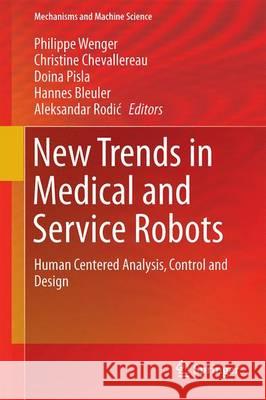New Trends in Medical and Service Robots: Human Centered Analysis, Control and Design » książka
topmenu
New Trends in Medical and Service Robots: Human Centered Analysis, Control and Design
ISBN-13: 9783319306735 / Angielski / Twarda / 2016 / 310 str.
Kategorie BISAC:
Wydawca:
Springer
Seria wydawnicza:
Język:
Angielski
ISBN-13:
9783319306735
Rok wydania:
2016
Wydanie:
2016
Numer serii:
000408639
Ilość stron:
310
Waga:
6.61 kg
Wymiary:
23.5 x 15.5
Oprawa:
Twarda
Wolumenów:
01











